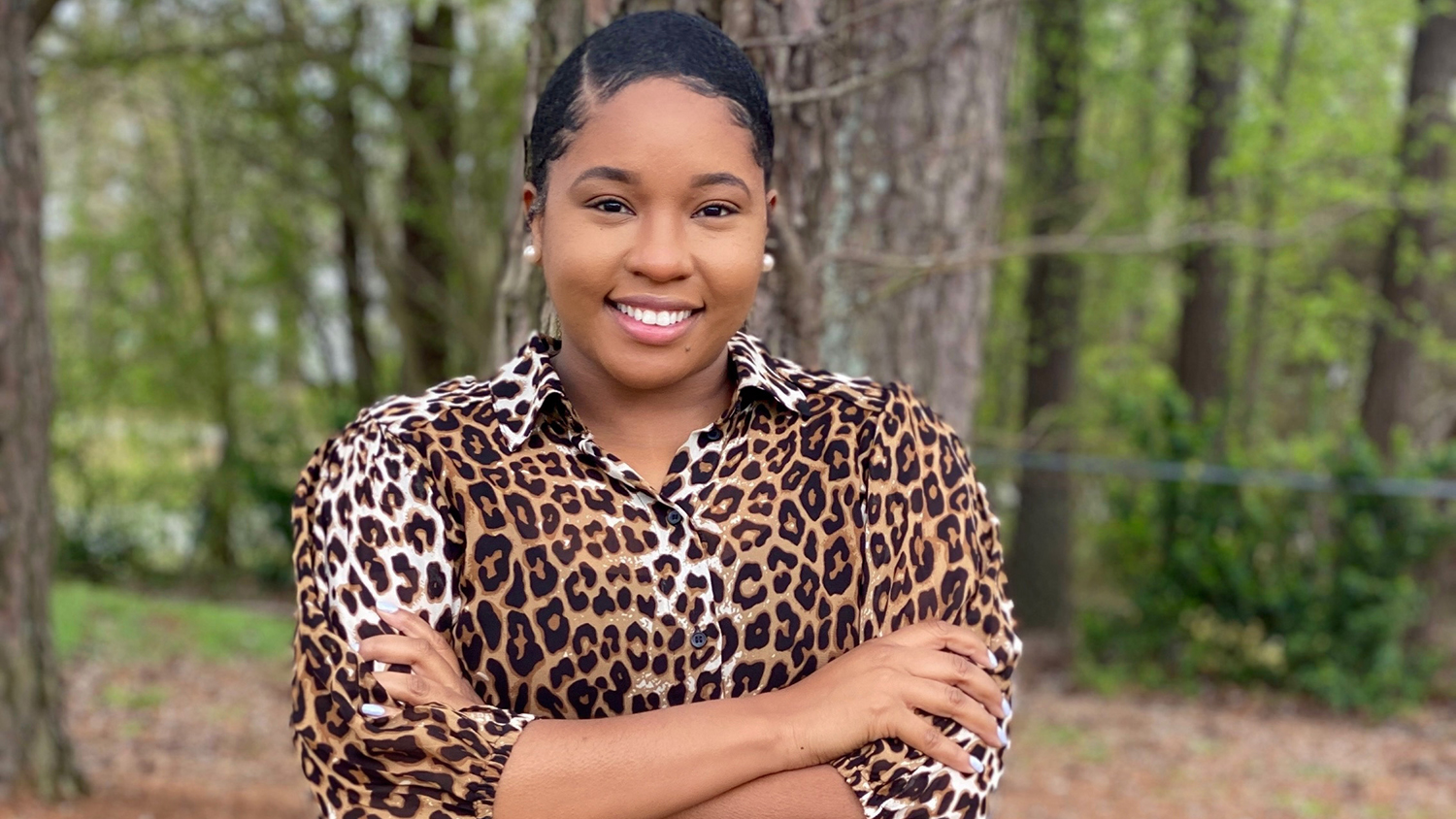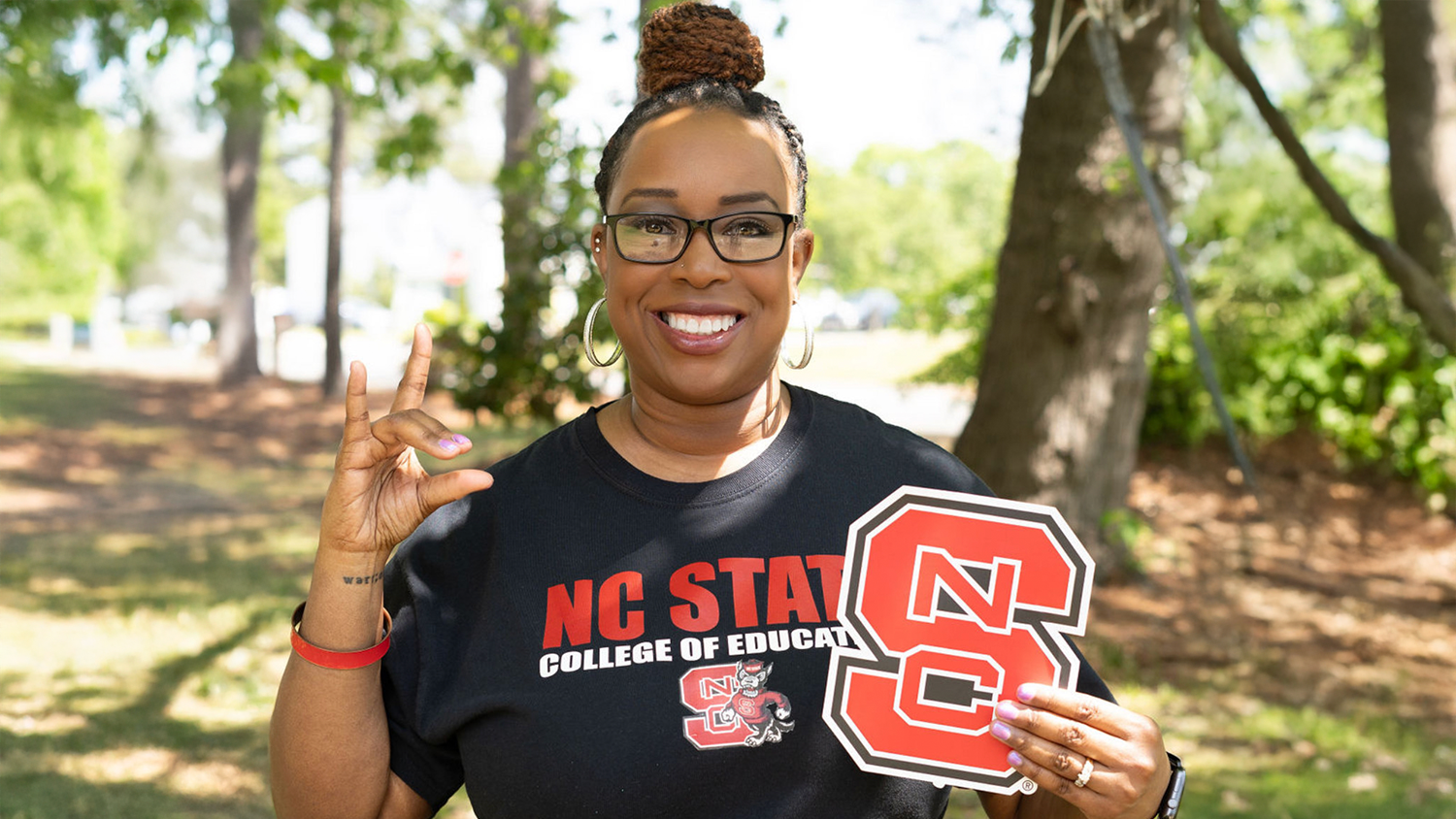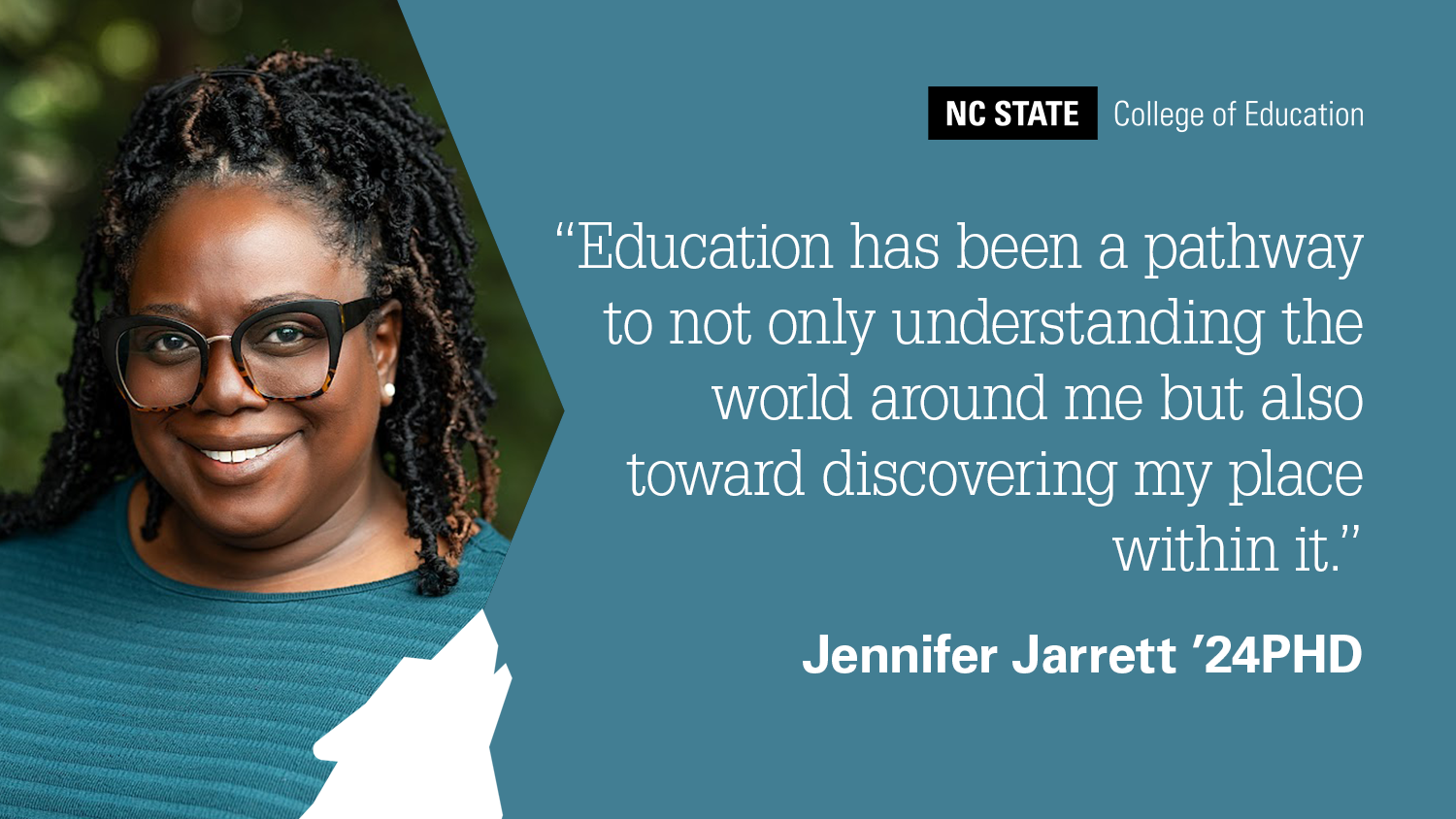Financial Support Affords Shaunacee Harris ’21MED the Opportunity to Become a Licensed Mental Health Counselor, Provide Services to Underrepresented Communities

From the moment Shaunacee Harris ’21MED arrived as an undergraduate at NC State, she wanted to work in criminal justice. Majoring in criminology with minors in forensic science and law and justice, she interned at the Wake Regional Juvenile Detention Center.
Upon graduation, she relocated to Arlington, Virginia, to pursue a career as a criminal profiler.
While pursuing her Master of Arts in forensic psychology, she served as a re-entry and family services intern with Opportunities, Alternatives, and Resources (OAR) of Fairfax, Virginia, a restorative justice organization. And it was that experience that shifted her career path.
“I developed a passion for creating equitable opportunities and rehabilitating underserved populations. I began to understand the importance of rehabilitating the criminal justice population because everyone deserves a chance at building a better life,” she said.
Harris says as an undergraduate, her approach was on punishment rather than a rehabilitative framework, and that she had never considered second chances.
After receiving her master’s degree, Harris landed a job with Coastal Horizons as a Treatment Accountability for Safer Communities (TASC) care manager, serving as a critical link between the criminal justice system and mental health and substance abuse treatment providers. In that role, she “connected justice-involved individuals managing mental health and substance abuse concerns” with community resources that addressed their emotional, physical, social and financial needs.
“The experiences in this position opened my eyes to the importance of mental health counselors, especially Black counselors, and that is why I am on this path today,” she said.
Harris returned to NC State to pursue a Master of Education in clinical mental health counseling through the College of Education’s Department of Educational Leadership, Policy, and Human Development. She was drawn to NC State’s program because of the program’s goals and its commitment to multiculturalism and training counselors to be culturally competent.
Harris, who will graduate in May, is currently applying to become a licensed mental health counselor associate. As the recipient of the Cassandra Lee Versteeg Mitchell Memorial Scholarship, the stress of affording licensure costs has been taken off of her shoulders.
“Receiving this scholarship helped reaffirm that I am right where I need to be. At times, I feel like I should be doing more to have a greater impact, but being awarded this scholarship, I am reminded that I am already making a difference,” she said. “I am being noticed for the hard work and dedication I put in, so my impact is already powerful.”
Financial support, Harris says, has allowed her to put more energy and focus into her studies and well-being instead of being overwhelmed with financial burdens.
“I am incredibly grateful to receive the Cassandra Lee Versteeg Mitchell Memorial Scholarship. Thank you to the scholarship donors and everyone else who played a part in making this happen,” she said. “This truly means so much to me.”
During her time in the master’s program, Harris has had the opportunity to intern with the Community Counseling Education and Research Center (CCERC), a community counseling organization that provides affordable services to individuals and families. In her role, she provides individual and group counseling to diverse populations.
“To get firsthand experience interning with an organization whose mission aligns with my future career aspirations has been rewarding. Through supervision and my counseling experiences, I am becoming more aware of my identities and how they impact me as a counselor,” Harris said. “I appreciate my personal and professional growth from being an intern at CCERC.”
When she graduates, Harris would like to work with a community counseling agency serving individuals and families. Her long-term plan is to open a community counseling center in a rural area that is accessible to marginalized communities and individuals with disabilities. She’s always said she wanted to serve populations that are underrepresented and she believes everyone deserves the opportunity to receive counseling.
“I always knew I wanted to have more of an impact, but I had no clue what that would look like, and counseling was exactly what I was looking for. I have always been an advocate for breaking the stigmas of mental health, especially in Black communities,” Harris said. “With this career, I can continue to have an impact while also using my platform to combat mental health disparities and barriers for underserved populations.”
- Categories:


